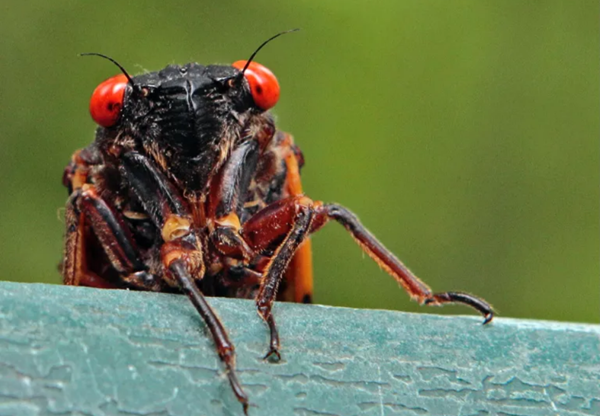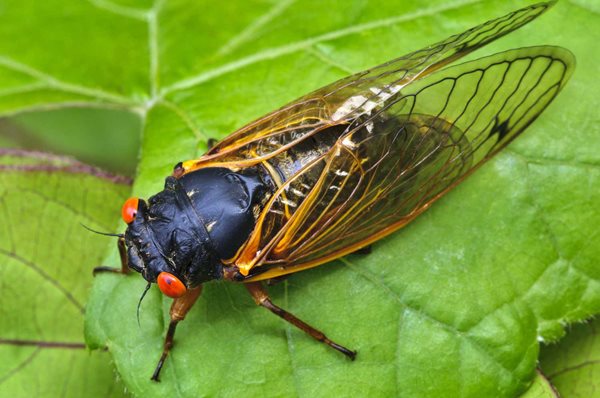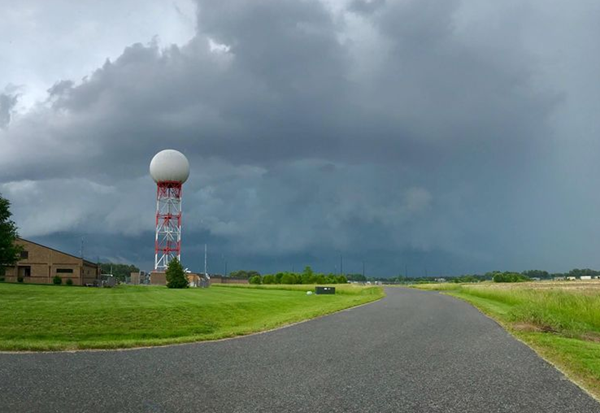Southern Illinois -- and a slice of western Kentucky -- awaits the onslaught of Brood XIX cicadas when they crawl out of the ground after 13 years and bring their deafening song to your backyard.
Billions of the bugs will emerge as soon as the soil temperature warms to 64 degrees. Recent afternoons that soared into the 80s were helping that cause, but now a cooler spell over the next several days could put the insect invasion on hold for awhile longer. Weekend lows down to 39 could even hasten some frost in isolated low spots.
According to Illinois meteorologist Albert Ramon, soil temps at an 8-inch depth as of Thursday are only about 53 degrees for much of the state. Of course, southern Illinois will warm soonest, but extended cooler weather could still delay the cicadas' emergence into early May.
There's even more "buzz" about the bugs this year because of a once-in-a-lifetime double emergence of two separate and massive cicada broods, the 13-year Brood XIX and the 17-year Brood XIII. They'll emerge simultaneously, an event that last occurred 221 years ago.
Brood XIX is the largest by geographic reach across Missouri, Illinois, Arkansas, Kentucky and several other southeastern states. Brood XIII is more concentrated in Illinois, Iowa, and Wisconsin, but it's the largest in size of its population, possibly in the trillions.
Six counties in central Illinois are ground zero where the two broods overlap, and will emerge side-by-side.
All of southern Illinois is included in Brood XIX's territory, but only about five western Kentucky counties can expect the total cicada experience; Carlisle, McCracken, Marshall, Trigg, and Union.
Despite some peoples' nervous anticipation of the invasion, there's little cause for concern aside from the noise. Cicadas don't bite or sting, and they don't bother garden plants or crops. Benefits of the cicada emergence are that they aerate the soil, and they provide a massive high-protein feast for animals, birds and fish.
Once they do emerge, it's just a 3-4 week period for the bugs to frantically mate, lay eggs, and die. Then, for our region, it's a return to peace and quiet... until 2037.
Advertisement
Cicadas' double emergence may be delayed by cooler temps
Advertisement
Latest Local & Regional
Local & Regional
a minute ago
Local & Regional
31 minutes ago
Local & Regional
3 hours ago
Local & Regional
4 hours ago
Local & Regional
19 hours ago
ADVERTISEMENT
Most Read >
ADVERTISEMENT
Latest Local & Regional
Local & Regional
a minute ago
Local & Regional
31 minutes ago
Local & Regional
3 hours ago
Local & Regional
4 hours ago
Local & Regional
19 hours ago
Advertisement
ADVERTISEMENT





